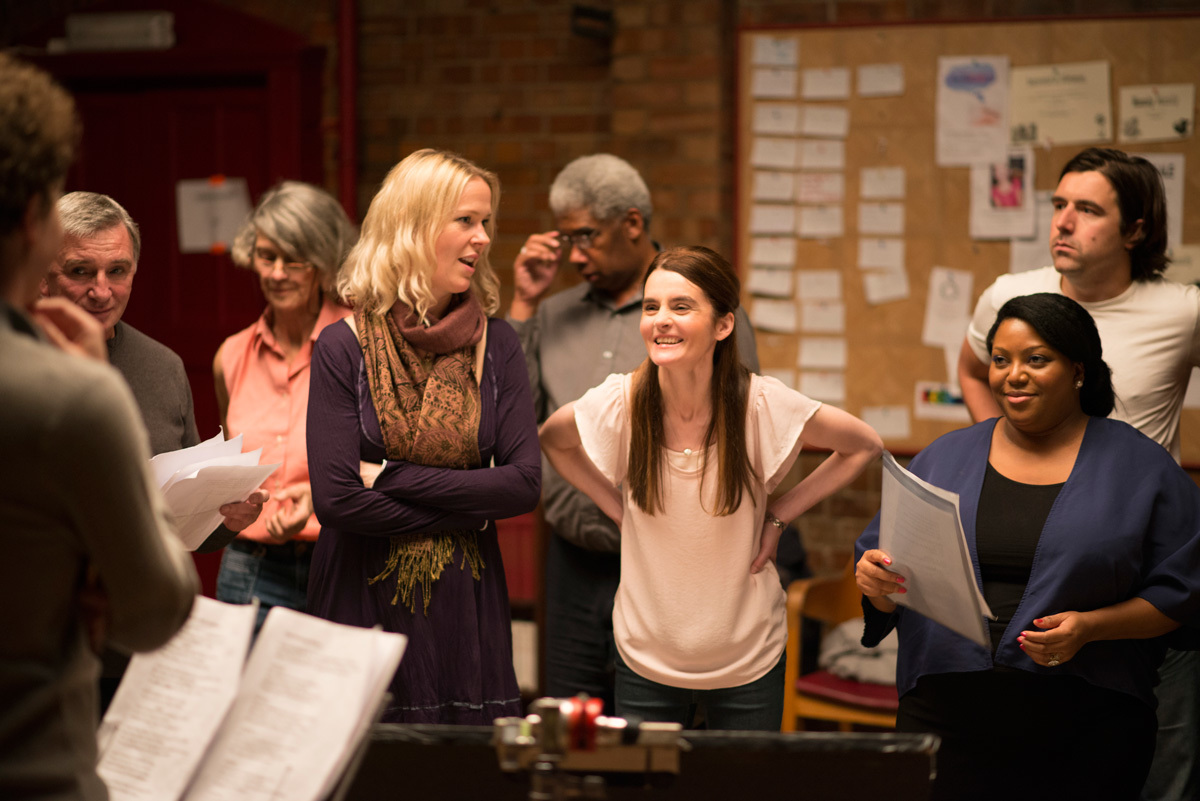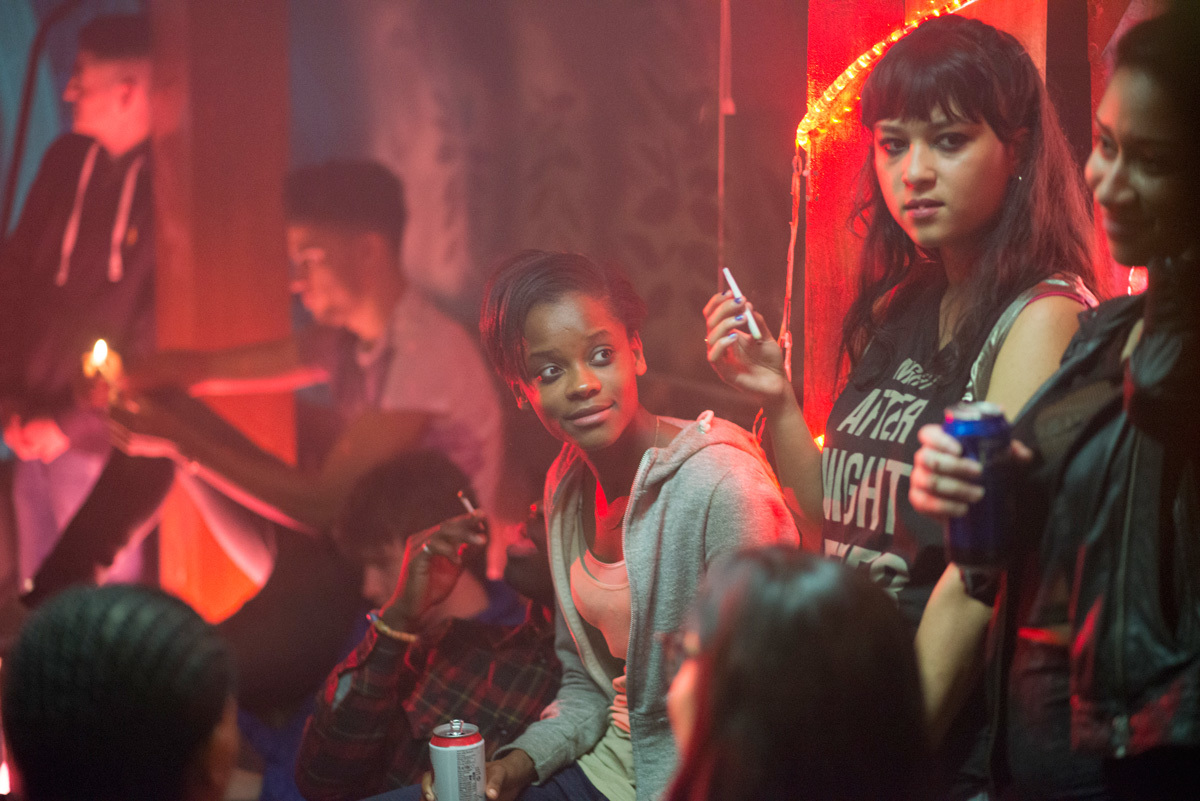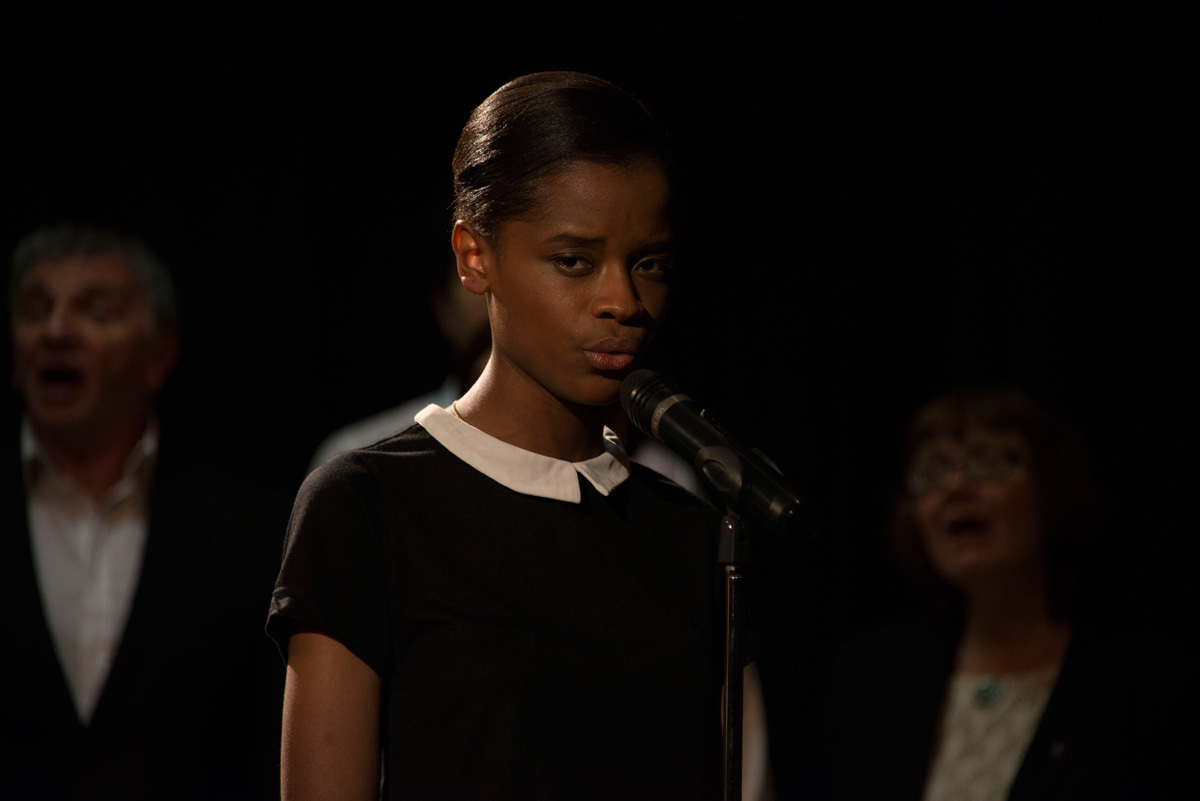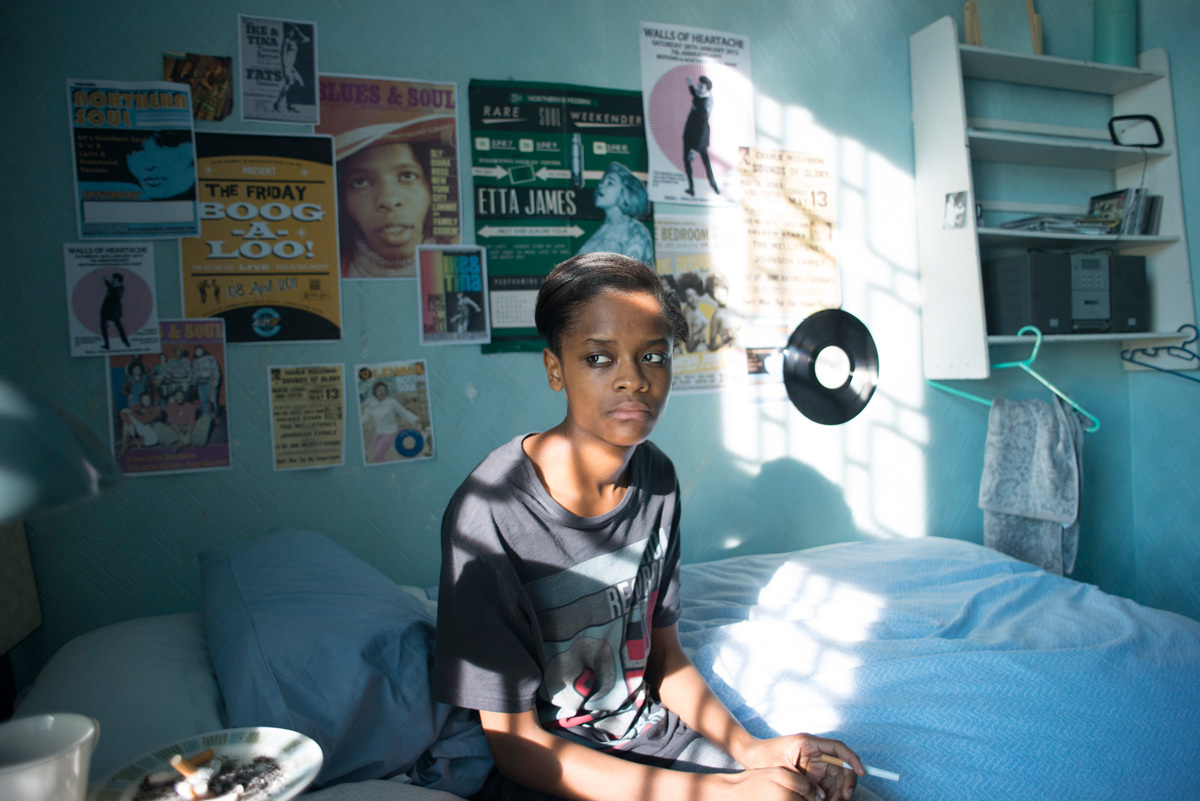Urban Hymn is a film about triumph through music set against the backdrop of the London Riots. That may read a little The X Factor meets Newsnight, but veteran director Michael Caton-Jones‘ film is a much subtler study in discarded youth.
That Urban Hymn works is due in no small way to the lead, Letitia Wright, who gives her character Jamie, a thoroughly authentic air. Jamie, a young offender with an undiscovered talent for singing, uses the 2011 riots as an excuse to loot with her best friend, Leanne (the equally fierce Isabella Laughland). When a newly trained social worker (Shirley Henderson) thinks she can Jamie away from crime, her best friend and towards a community choir, tensions rise.
Urban Hymn is further proof of the Guyana born actress’ rising star, as she plays Jamie both rough and vulnerable in a pretty raw exploration of life on the fringes. A recognisable face from TV drama like Top Boy and Glasgow Girls, the 22-year-old was named a BAFTA Breakthrough Brit after her star making turn as baby dyke Scotty in Russell T Davies’ Cucumber series last year. Now, Urban Hymn director Caton-Jones says she’s the best young actor he’s worked with since Leonardo DiCaprio in This Boy’s Life. If that’s pressure to perform, Letitia isn’t showing it as she talks to i-D about riots, singing and why she wants to bring diverse voices on the fore.

In Urban Hymn, Jamie is a ball of rage to begin with. What did you think about her mentality?
I watched documentaries about young female offenders. They do most of the things that Jamie did, putting up huge walls and making people around them feel very intimidated and scared of them. So I applied that to this character. But the documentaries also showed that these young people can have a vulnerable side.
Did you find that research depressing?
Not depressing but insightful. Just seeing how society might write someone off as aggressive and bad from what is seen from the outside. But when you tap into the conversation with these young people you find they have ambition, they are extremely intelligent but they put up these barriers which makes everyone think they’re no good. It showed me there’s a lot of kids out there having difficulty expressing what they are really feeling. There’s a lot going on underneath the surface.
The context is the London Riots. Do you remember it?
I do remember it. It was a couple of streets away from my house in Tottenham. It was a very sad time because someone’s life got taken away. A lot happened that evening that didn’t need to happen. Like the characters in our film, there were a lot who weren’t sympathising with the fact a person’s life was taken; they were using that event to steal things. It was a really sad time; someone lost their life. The city was in a bad place.

Did that inform your decision to take on the role?
It wasn’t the main point. A great documentary that explores the riots much more in depth is The Hard Stop. The riots in Urban Hymn is literally a setting, this is what these two girls did on this night and later on you see the consequences.
Jamie has an undiscovered talent for singing in the film. How was performing for you?
I am not a singer at all! I’ve not done singing classes at all. I did a little bit of singing on a TV show Glasgow Girls before Urban Hymns. I wanted to take up the challenge and see if I could create something.
What is your passion?
My passion in terms of an outlet is acting but an extension of that is to bring something meaningful to people. I want to act for the right reasons; my passion is to do stories that people can connect to and get something from. I like meeting people on the road and finding out what they like or didn’t like about the story, how it affected them. That’s my passion; to connect with people in a real way.

Did you find that connection from playing Scotty in Banana?
My thing was to be honest; to be real to that character. I was so surprised by the feedback. I got people stopping me on the train and saying they saw it and saying how it made them feel. People said Scotty made them feel sad, happy, that she was so different, that they never saw a character like that on TV.
Cucumber felt ground breaking on British TV in terms of diversity. Is that important to you?
Yeah, of course. Just the importance of showing what’s happening in our society. That there’s different people from all walks of life, different ethnicities and cultures. Just bringing that to the screen makes a lot of stuff much less alien. I don’t see a lot of films about Guyana; I hope to make one one day. Just to show that culture, that vibe. It’s very important to show what’s going on in our society today.
Why would you like to do something about Guyana?
It’s my hometown. No one’s really seen what that culture’s about. No one’s really seen that on TV or on film before. It’s something refreshing. I find it so refreshing to see a film about a culture I don’t see everyday.
Urban Hymn is in cinemas from Friday 30th September.
Credits
Text Colin Crummy
